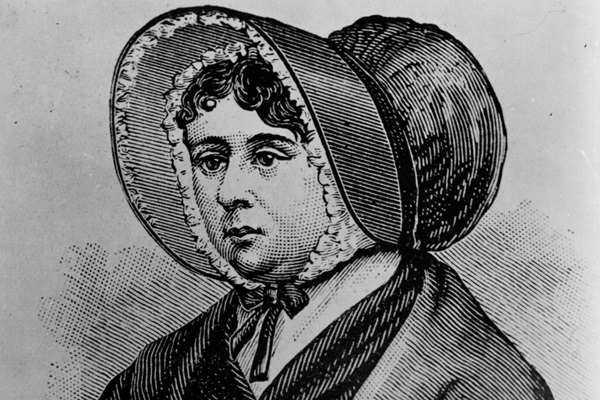We’ve all heard the names John and Charles Wesley, but there are a lot of other important names in the history of Methodism you may not know. The Unsung Heroes of Methodism series tells the stories of lesser-known figures whose lives and witness still impact The United Methodist Church today, even if their names aren’t familiar to us.
Meet more heroes
Barbara Heck
Sometimes a story that’s too good is still true. The story of Barbara Heck, “The Mother of American Methodism”, is one of those stories. Most United Methodists who’ve heard the name know Barbara Heck as the woman who saw her husband and other men playing cards one night, and in a moment reminiscent of Jesus in the Temple, angrily threw their cards into the fireplace and demanded they form a new Methodist society in New York City.
But who was this bold and pious woman and why was she so determined to bring Methodism to America? We know very little about Heck’s life prior to her coming to Colonial America in 1760. We know she was born in Ireland in 1734 to immigrants from Germany and that she married a man named Paul Heck. Both Hecks became involved in a local Methodist society in Limerick.[1]
In 1760 the Hecks immigrated to New York (still a British colony at the time) as part of larger German-Irish group.[2] The Hecks had a Black servant named Betty who served as a housemaid.[3] In 1765 they were joined by Barbara’s cousin, Philip Embury, who had also been converted to Methodism in Ireland and had previously served as a local preacher there.[4]
Despite all having been faithful Methodists back in Ireland, the Hecks and their friends began to lapse in their spiritual practices since there were no active Methodist fellowships in the area. It was during this time that Barbara came upon her husband and other men of their community playing cards one night and made her famous stand. Gambling was considered sinful by Wesley and the early Methodists because it was a waste of both money and time that could better be put to God’s use.[5]
Since Embury had served as local preacher back in Ireland, Heck charged him with leading their new society. Thoroughly shamed by Barbara’s boldness, the men got to work right away. While Embury served as preacher of the society, Barbara continued to play an active role in converting and organizing other women. Aiding her in this was Betty who brought in many African American slaves and free persons, making the New York Methodists a biracial community from the start.
By 1768 the society built the first official Methodist church in America on John Street in Manhattan. Though not the first official Methodist society in America, the New York group was one of the fastest-growing. After one of the members wrote to John Wesley requesting help, Wesley sent two missionaries named John Pilmore and Richard Boardman to supervise and unite all the various Methodist groups operating in America. This would become the foundation for the Methodist Episcopal Church (precursor to the United Methodist Church).
In 1770 the Hecks joined Embury to establish a new Methodist society in the town of Camden in Upstate New York. Barbara’s life took a difficult turn soon after. Like many Methodist leaders in North America at the time, the Hecks were loyalists who opposed the American Revolution. Paul Heck briefly joined the British Army during the War and eventually the couple were forced to flee to Canada where they settled in Ontario among other loyalists. Barbara never lost her zeal and would help found the first Methodist community in Canada. Barbara died in 1784.[6]
The work Barbara Heck and her community did in New York continued long after her. The congregation she started still meets in John Street UMC today and its success led directly to the Wesley’s decision to send superintendents to America who would combine her society with that of others to form the Methodist Episcopal Church. Without Barbara Heck who knows if Methodism would have survived and prospered in America as it did, allowing it to supplant Britain as the center of Methodism in the 19th Century. The United Methodist Church of today still benefits from Heck’s example. That’s why we honor her as one of the unsung heroes of Methodism.
This content was produced by UMC.org on October 31, 2023. Philip J. Brooks is a writer and content developer at United Methodist Communications. Contact him by email.
[1] “The History Of Barbara Heck.” Victoria United Church. Prescott, Ontario.
[2] “Methodism’s Arrival in America.” General Commission on Archives and History for The United Methodist Church.
[3] The Book of Resolutions of The United Methodist Church 2016. Nashville: Abingdon Press, 2016. Resolution #3062.
[4] Russell, Richey E. and Rowe, Kenneth E. The Methodist Experience in America: A History Volume 1. Nashville: Abingdon Press, 2010.
[5] Idem.
[6] “The History Of Barbara Heck.” Victoria United Church. Prescott, Ontario.





